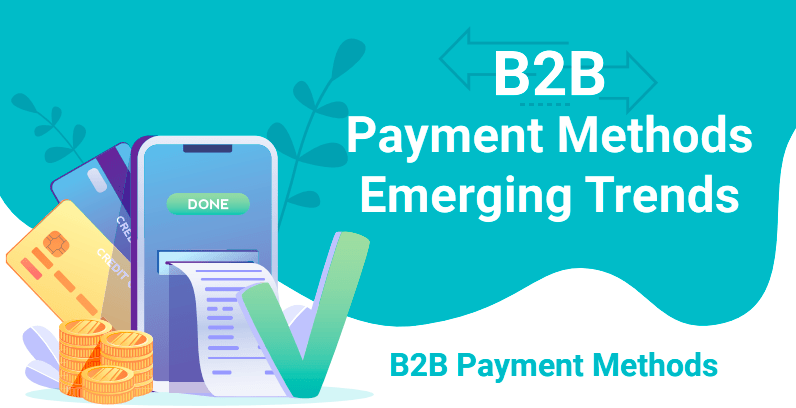B2B Payment Methods Emerging Trends
In a world characterized by relentless technological advancements, businesses are evolving to keep pace with the changing times. The realm of business-to-business (B2B) payment methods is no exception. While customer-to-business (C2B) payments have rapidly adapted to new technologies, B2B transactions have been slower to embrace change. This introduction offers a glimpse into the transformative impact of innovative payment technology on B2B transactions. Revealing the trends that are shaping the future of enterprise commerce.
Let’s define B2B payments. These transactions involve the exchange of money for goods or services between two business entities. The payments may be one-time or recurring, depending on the agreements between the buyer and seller. Participants in B2B transactions include manufacturers, distributors, corporations, wholesalers, and retailers, among others.
In stark contrast to the straightforward nature of C2B transactions, B2B payments are typically more complex. They often involve significant sums of money and substantial quantities of goods, making purchase decisions intricate and time-consuming. Various factors impact the efficiency of these transactions, including purchase volume, payment history, and the relationship between the buyer and seller.
B2B Payment Landscape
Traditionally, the B2B payment landscape relied on manual and paper-based processes. However, a transformative shift towards cloud-based, automated payment systems is underway. Increasingly, B2B buyers and suppliers are using digital solutions that streamline the buying and selling process, facilitating faster and more efficient business payments.
The global pandemic played an unintentional role in expediting this digital transformation. During the pandemic, 68% of small businesses reduced their use of cash and paper checks. Primarily due to the time-consuming nature of deposit processing. As a result, by 2025, a substantial 80% of B2B sales interactions will occur in digital channels.
The allure of digitization extends beyond efficiency; it is also marked by cost-effectiveness. Research indicates that electronic invoice payment processes cost, on average, 60% less than their paper-based counterparts. High processing costs have long been a significant challenge for businesses, with typical accounts payable (AP) departments incurring nearly $8 in expenses to process a single supplier payment.
Cryptocurrency & Blockchain Technology
In addition to the surge in digital payments, one remarkable trend involves the integration of cryptocurrency and blockchain technology in B2B transactions. Although cryptocurrency was utilized by only 8% of firms in 2019, its adoption has been more pronounced on the international stage. Businesses involved in global transactions have
witnessed a 75% reduction in fees through cryptocurrency payments compared to traditional wire transfers.
Despite the enduring presence of checks and cash, which hold a significant 45% share of the B2B payment landscape, it is evident that intelligent and electronic disbursement methods are the path to the future. These approaches promise enhanced efficiency, cost-effectiveness, and a seamless transaction experience, making them the preferred choice for modern B2B payments. To gain deeper insights into B2B payment methods and the emerging trends shaping this landscape, please refer to the accompanying resource.
Infographic created by CardConnect, an ISO credit card processing company
- For Manufacturers, Quality Control Should be a Sales MVP
- Investing in Retention: How Benefits Support a Stronger Workforce
- Cybersecurity Essentials for Customer-Facing Platforms: Safeguarding Trust in a Digital-FirstWorld
- What Can’t Be Replaced: Protecting High-Value Assets in Agriculture
- Removing Bottlenecks in B2B Sales: Creating a Clearer Path to Growth

